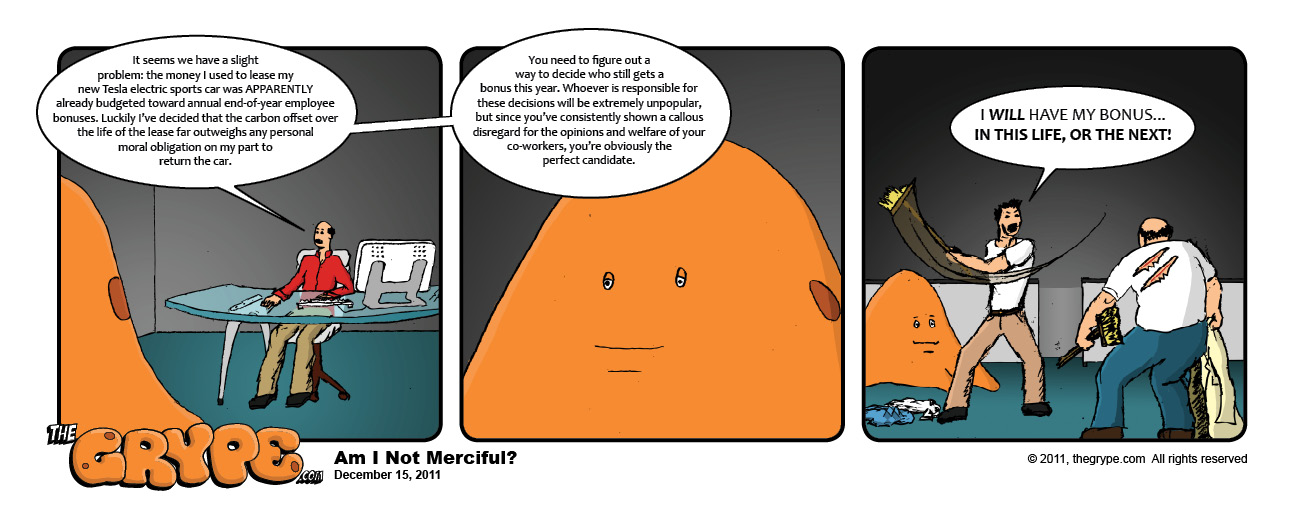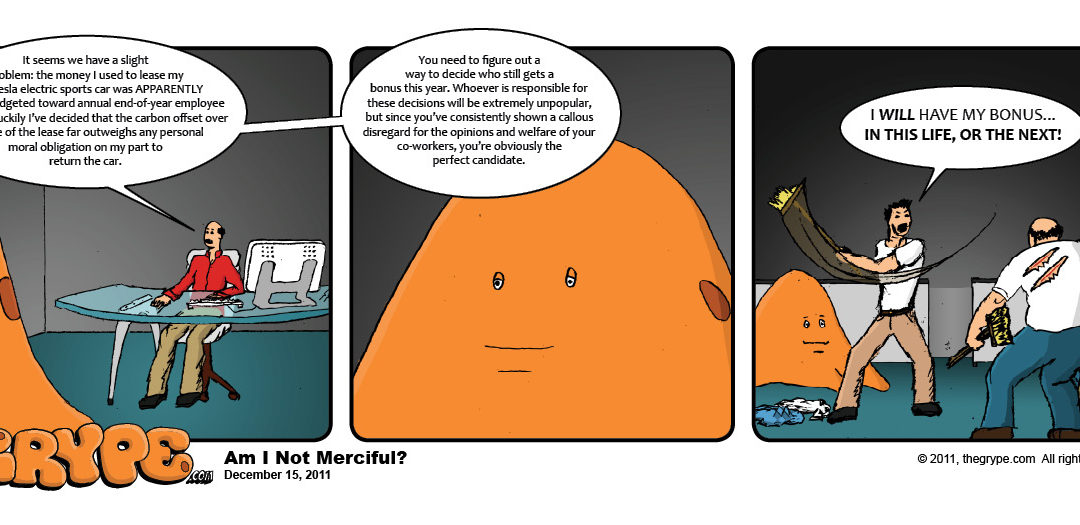 So the Iraq War officially ended last night, quietly and this time without any Presidential landing of a fighter jet on an aircraft carrier. This isn’t supposed to be a political blog, but a business one, so let’s crunch some numbers: Monetary cost of Iraq War to date: $800+ billion dollars. Number of WMDs located and destroyed: Zero. Total cost in human suffering and loss of life: Incalculable. Thanks, Uncle George (and Grandpa George Senior, too). We’ll have Congress send you a bill. Ha! Just kidding! You get off scott-free.
So the Iraq War officially ended last night, quietly and this time without any Presidential landing of a fighter jet on an aircraft carrier. This isn’t supposed to be a political blog, but a business one, so let’s crunch some numbers: Monetary cost of Iraq War to date: $800+ billion dollars. Number of WMDs located and destroyed: Zero. Total cost in human suffering and loss of life: Incalculable. Thanks, Uncle George (and Grandpa George Senior, too). We’ll have Congress send you a bill. Ha! Just kidding! You get off scott-free.
Time magazine recently named “The Protester” its 2011 “Person of the Year.” Not surprising; rarely has so much been accomplished on the world stage by targeted outpourings of mass indignation; the anger of the masses is a powerful force for change in any political landscape, as history shows.
I have no problem with rational, concerned protestors in service to a good cause, even when they ARE blocking the street and slowing traffic. But I’m a bit wary of the motives of some who politicize their “victimology” for militant purposes. We are all susceptible to that brand of fascism, should we ignore the warning signs that fear is being used against us to impose a victim mentality.
In our world, many, many people are victimized. For many reasons. And that is bad.
But within some groups who can reasonably claim “victim” status, radicals emerge who seek unreasonable personal empowerment so they can revenge themselves on their real (or perceived) oppressors. They do so by hijacking a political movement catering to angry people, who are then given additional support— structural, political, and financial— and encouraged to pursue the goal of “striking back.”
Whether or not this should be interpreted as a good or bad thing depends upon what it is the “victimized” group then does, and to whom, and how they do it.
Education, restitution, defense— these are good goals which can be (and often are) achieved by such groups.
But to again quote the immortal Bertrand Russell: “All movements go too far.” No matter how benign the beginnings of such movements, sometimes a sub-group of hardcore radical extremists manifests within some of them. Worse is when these sub-groups hijack the original group (or portions thereof) and subvert the original, rational and readily-supported purpose of the original group toward new goals— usually intended at empowering the sub-group at the expense of others.
As the new agenda grows more militant it makes less sense to the average group member, so new support for the extreme program is often drummed up by psychological pressure aimed at artificially inflating the “victim identity” of the members. It is heavily implied (or even stated outright) that because of the horrors suffered by the original victims at the hands of their oppressors, there should be no limit to the retaliatory actions of the extremist group.
Tragically, sometimes the extremist elements of the original victims group wind up VICTIMIZING other people in order to achieve their agenda. Except that agenda rarely has a real motive other than continuing to feed its ideology on hatred, under the psychological blanket of the “we are always victims” ideology, supported by scare tactics and attacks against “the enemy.” Who are often NOT those who victimized the original group in the first place.
These things happen by degrees. That’s how a gentle and rational concerned environmentalist can end up murdering an innocent logger by spiking a tree. Or how a deeply moral Pro-Life activist can end up spraying the lobby of a clinic outpatient center with automatic weapons fire.
One good warning sign that this process of retaliatory victimization is occurring is when one of their spokespeople begins a sentence with the words… “Back when YOU did this to US…” and then goes on to describe actions which took place when neither “you,” nor “us,” were actually THERE.
When American multi-millionaires claim they are being unfairly targeted and victimized because someone wants to raise their taxes, you know things have gotten pretty bad. There may be worse instances of a misguided victim ideology than that, but none I can recall off hand. These days the cry of “victimization” has become an excuse for anything and everything. But then… if everyone is a victim, doesn’t the entire concept lose all meaning?
“Victims,” commented the late Brandon Lee in the 1994 film The Crow, in mid-murder: “…aren’t we all?”

